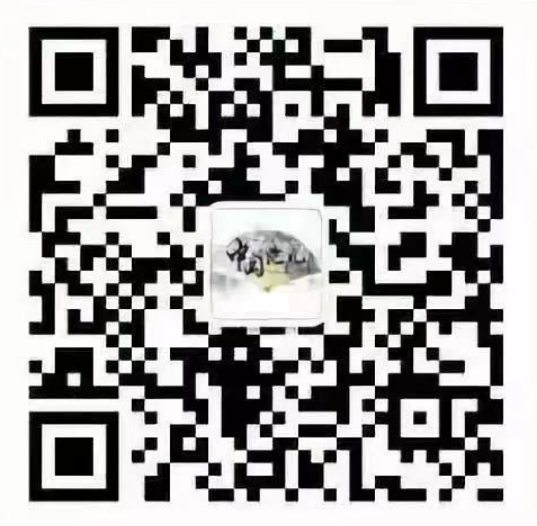生肖兔:因神话“走红”的吉祥使者
2023年1月22日,中国“农历新年”迎来生肖兔年。
On the 22nd of January, 2023, the Chinese Lunar calendar will welcome the year of the rabbit.
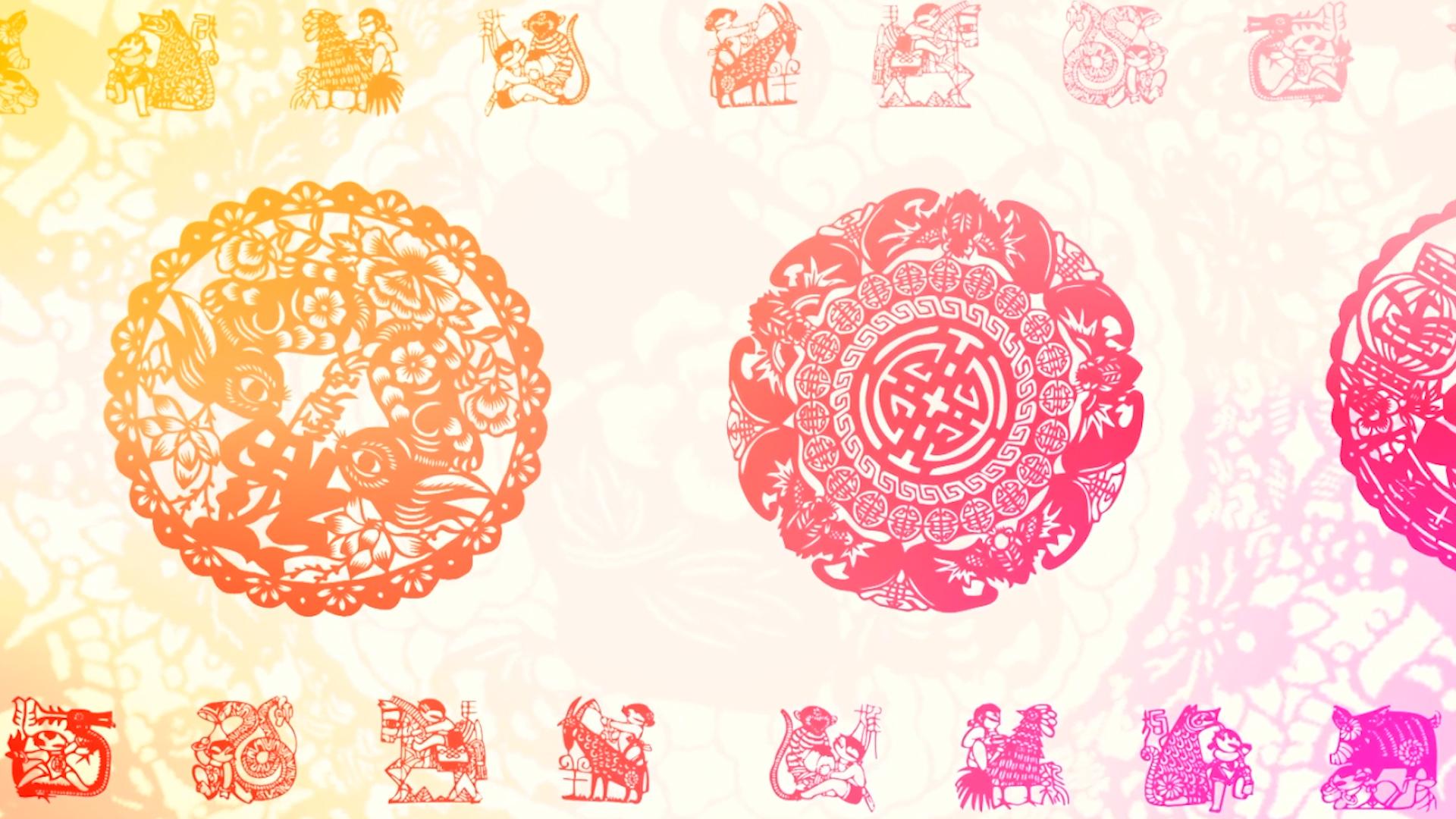
生肖文化是中国传统文化的重要组成部分,也是春节吉祥物和传统年俗文化的象征,兔子可爱活泼,寓意吉祥,是活力和幸福的象征。古书《瑞应图》中记载:“赤兔大瑞,白兔中瑞。”
Zodiacs are a key constituent of traditional Chinese culture, for they are mascots of the Spring Festival and symbolic of Chinese New Year culture. The rabbit, which is cute and lively, denotes auspiciousness and vitality. The Song Dynasty creation “illustrations of Auspicious Omens” (Ruiyingtu) depicts that“red rabbits symbolize major auspiciousness, and white rabbits general auspiciousness”.
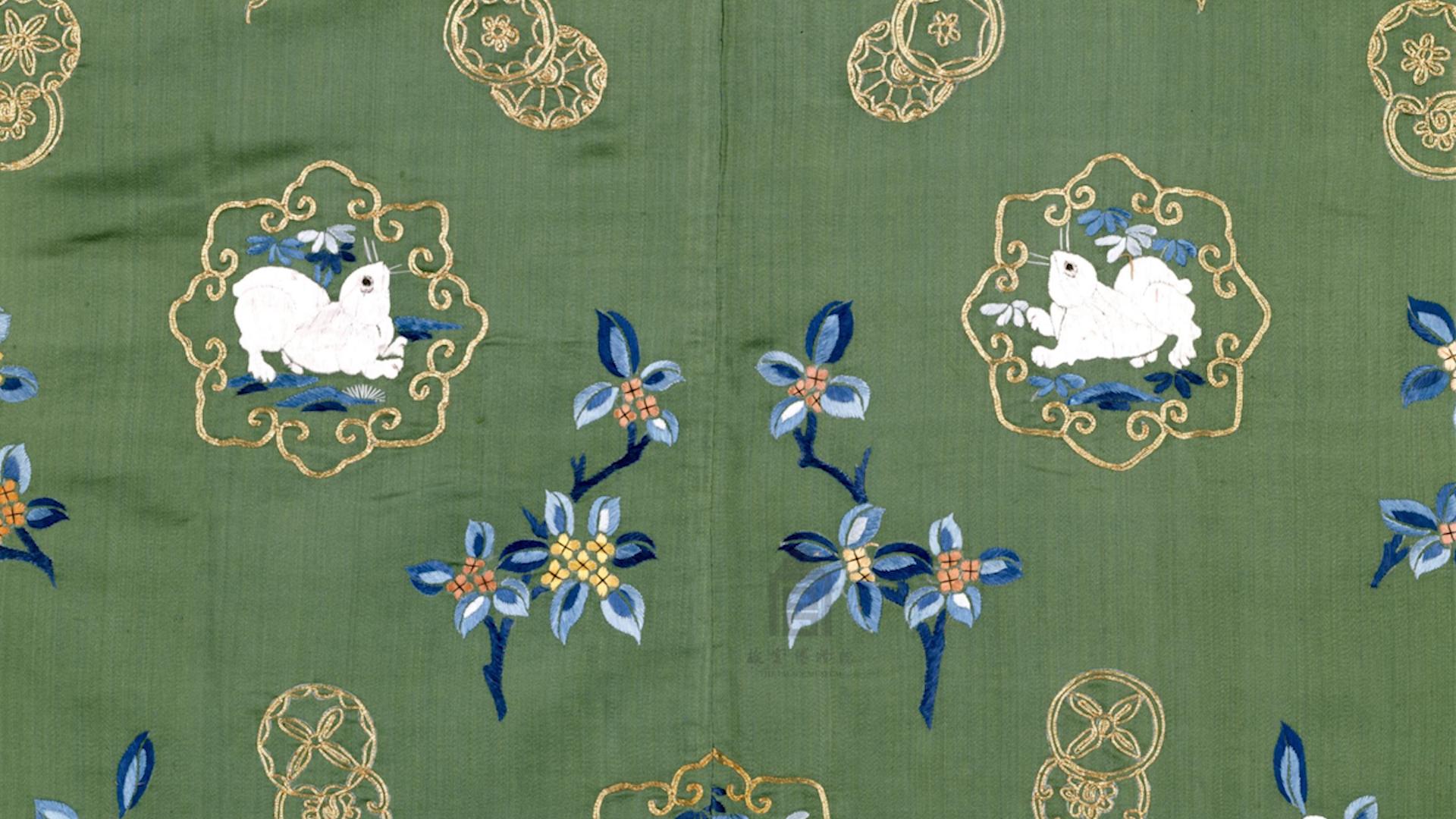
在中国,如果说龙、凤是皇家专属象征,那么兔子可以说是民间吉祥物的代表了。文房书画、建筑装饰、服饰图案、贴身佩饰、孩童玩具、日常餐具……还有萌萌的印章,兔子形象无处不在。
If the dragon and phoenix have traditionally represented the nobility in China, rabbits are a mascot for luck and fortune among the everyday people. Rabbit imageries are almost ubiquitous, appearing on calligraphic paintings, architectural patterns, fashion and attire, children's toys, daily utensils and even cute rabbit seals…

这面古代铜镜上嫦娥身姿飘逸,手托“大吉”二字与白兔相伴于月亮之上,民间传说“嫦娥奔月”将嫦娥、玉兔和月亮三者紧密联系在了一起。
This mirror depicts a pattern of an ethereal Chang'e, the Moon Goddess, holding the two characters 大吉(daji, meaning “big luck”) and accompanying a rabbit on top of the moon. The folk legend “Chang'e flying to the moon” has closely bound Chang'e, the jade rabbit and the moon together.

人们按照传说,进一步把玉兔艺术化、人格化,乃至神化之后成为了“兔儿爷”。“兔儿爷”被认为是祭拜月神时祈求治病去灾而创作的一种游戏玩偶,这种以武将为造型的“兔儿爷”很受孩子的喜爱。
The Chinese people have built on such legends, integrating rabbit images into artworks, personifying rabbits and even deifying them. The Lord Rabbit (Tu'er Ye) is a popular deity who was believed to first appear as a toy when people offered sacrifices to the moon god in hope of curing disease and removing disasters. The Lord Rabbit was depicted as a martial figure which became very popular with children.
古时候,兔子被认为有六大优点:敏、勤、勇、智、仁、和。时至今日,宠物兔子因其可爱的外表和安静的性格,成为了孩子们成长的玩伴。国外的影视动画、玩偶也逐渐走进中国家庭。古老的伊索寓言故事“龟兔赛跑”让孩子们懂得了虚心使人进步,骄傲使人落后的哲理。
In ancient times, rabbits were believed to embody six virtues: agility, diligence, courage, wisdom, benevolence and harmony. Even today, pet rabbits are a household favorite due to their cute appearance and quiet personality. In addition, foreign films, animations and toys have been increasingly embraced by Chinese families. The cautionary Aesop tale, The Hare and the Tortoise, have taught children everywhere that humility drives progress while arrogance brings defeat.
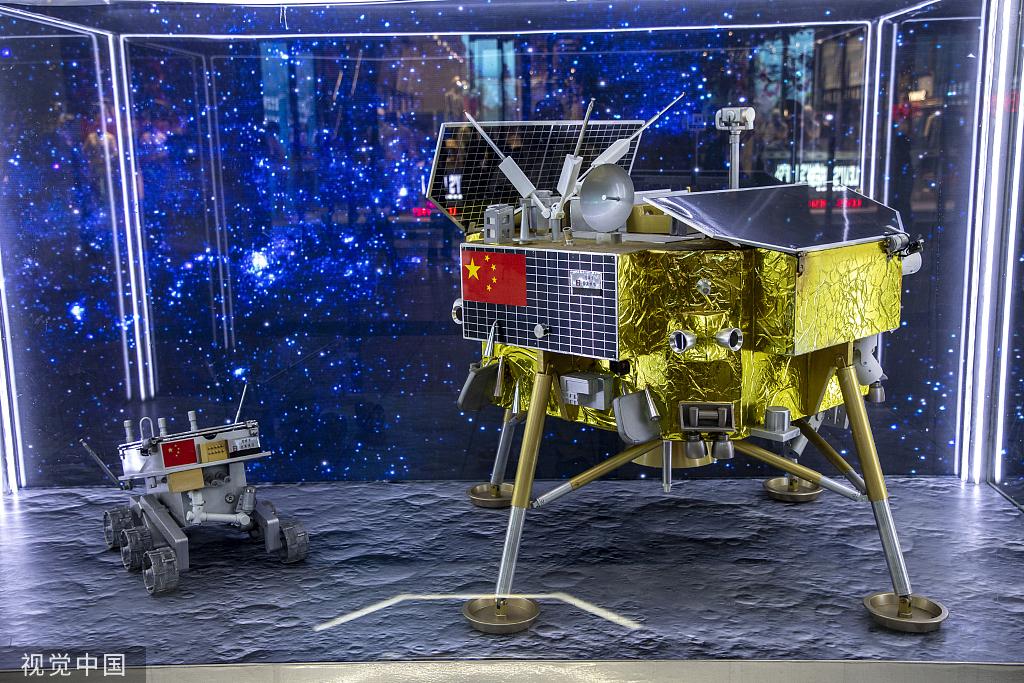
“5、4、3、2、1,点火!”
“Five, four, three, two, one – blast off!”
“嫦娥探测器”携带着“玉兔号月球车”从火箭发射场拔地而起,这也是以神话故事为背景命名的中国月球探测工程——嫦娥工程。今天,中国已成为首个将探测器在月球背面软着陆的国家,航天人的不懈奋斗让神话得以“续写”。
The Chang'e lunar probe carrying the Jade Rabbit rover into space is also a testament to the adoption of legendary Chinese folklore in the nation's lunar exploration mission, known as the “Chang'e program”. To date, China is the only country to have executed a non-impact touch down of a lunar probe on the moon's unchartered side that is not visible from Earth. The undying determination of our aerospace heroes have written a sequel to the Chang'e legend.
从生肖神话到现实中的陪伴,兔子始终是“吉祥使者”。无论你现在年龄有多大,谁的心中没有一只兔子呢!
Rabbits are indeed ambassadors for auspiciousness, appearing in both legends and everyday life. There is a bunny in all of us, no matter our age.
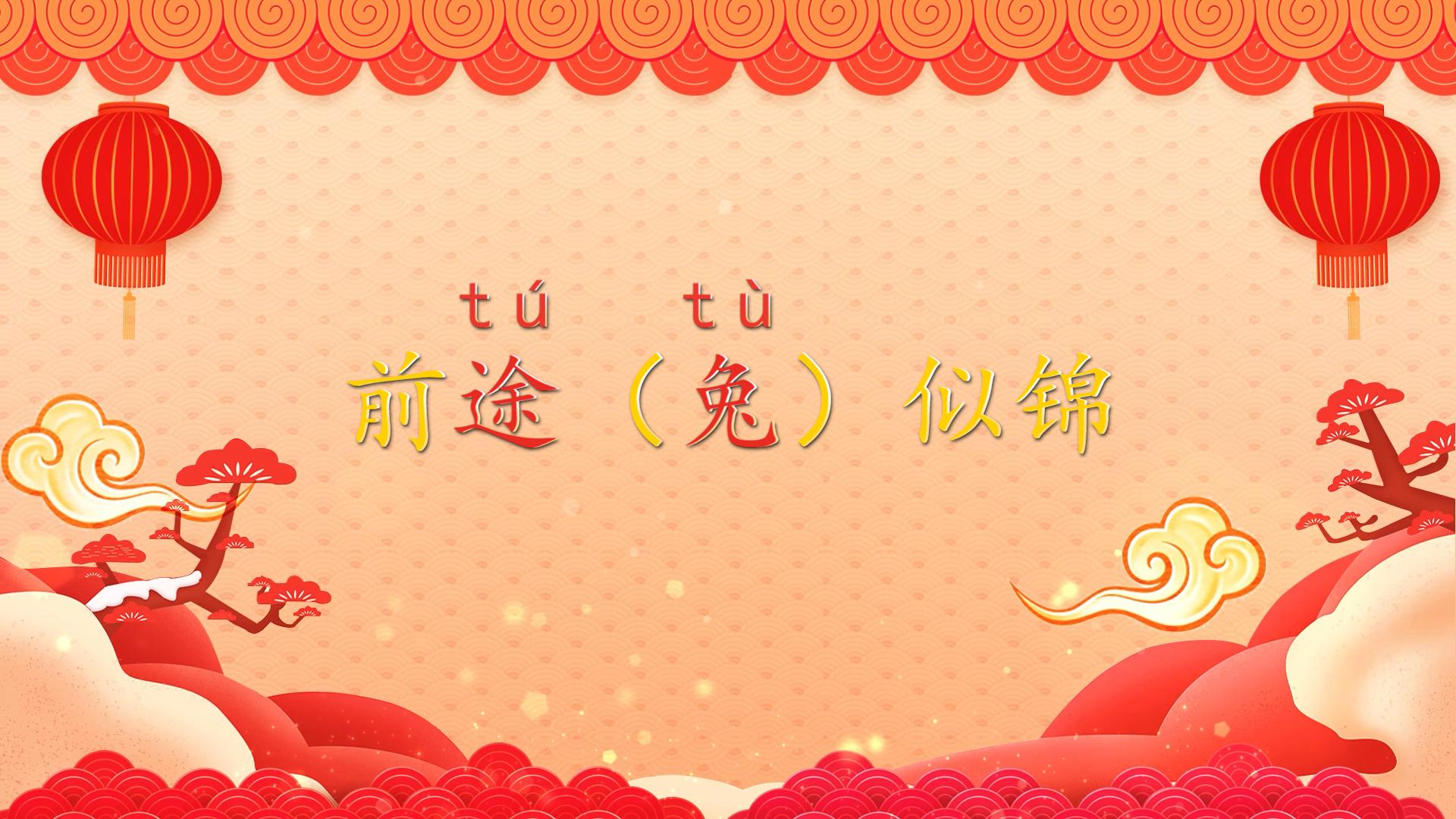
春节到!中国人往往将生肖与成语结合,取谐音后的“成语”作为相互祝福的词语,比如大展宏图(兔)、前途(兔)似锦、扬眉吐(兔)气……你学会了吗?
With Chinese New Year around the corner, the Chinese people, as always, like to turn year's zodiac character into a pun by incorporating it into idioms. In the year of the rabbit (tu in Chinese), some auspicious idioms include “dazhanhongtu” (riding on the crest of success), “qiantusijin” (wishing one an auspicious future), “yangmeituqi” (holding one's head up high)… Have a try yourself?










